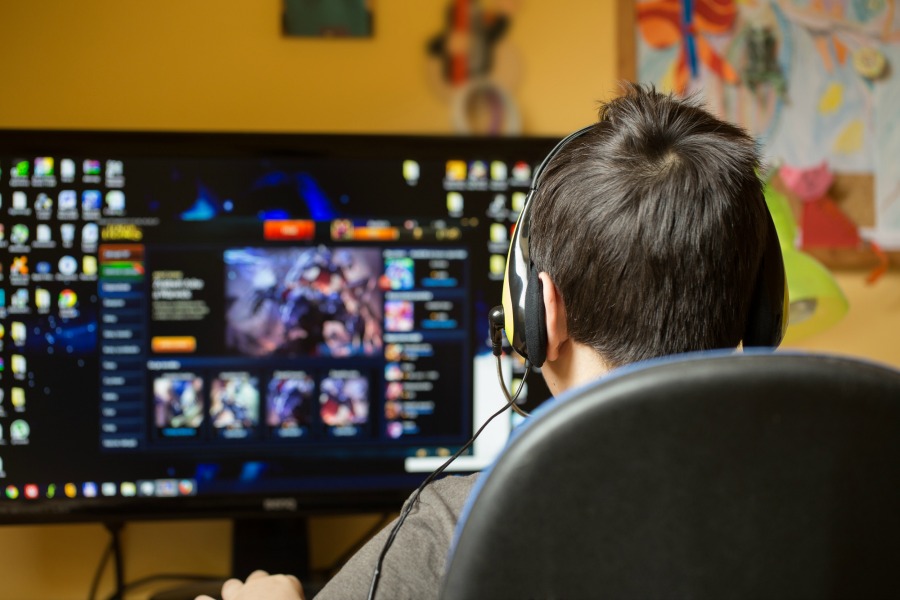I’m a member of a local community Facebook group. Not so actively, but I do like to stick my nose in and see what’s going on around the place. Now… yesterday morning, a frustrated parent posted this plea for help ….

Absolutely yes, the struggle with an online gaming teen can be frustrating and her angst isn’t an isolated or unusual problem. Remember too, we’re also the first generation of parents to deal with these cyber-savvy kids.
Many parents have sought to discuss this issue with me, and while I’m no expert on technology use, abuse or addiction, there are some ideas I’d like to share around this quandary.
Determine the real problem
Experts in adolescent development will tell you that teens seek isolation as a very normal part of their development. They want to spend more time either with friends, or in their own company… just about anywhere other than with the family. This is how they develop their sense of identity and independence. It can bamboozle and upset parents, but it’s not a stage that will last forever.
So then, in determining the issue at hand….
Do parental concerns exist because (A) the teen is neglecting basic hygiene, failing to seek adequate nourishment, has lost the capacity to speak, read and write and possibly turning a pale shade of blue through lack of fresh air? OR is it because (B) our own experience doesn’t easily relate to the online world our kids live in?
In the case of (A) professional help is strongly recommended and sooner rather than later. You can start with your supportive GP or school Guidance Officer for further specialist referrals.
However, my recommendations are not so urgent if you can identify your own unease as one of the major issues here.
What we parents find difficult to accept
We feel uneasy and unsure about things we don’t understand and/or haven’t experienced ourselves. To coin a phrase… back in the day… when we were lurching through adolescence, our world was very much a face-to-face one.
Socialisation was over a coke and burger down at the corner store, jokes were whispered directly into an ear behind cupped hands and poking actually meant jabbing a forefinger into someone’s rib cage. For many of us, these kinds of experiences equal our youth.
For this generation of teen… social media apps, online games and forums are their equivalent. Same, same but different though serving an identical purpose. It’s their way of connecting, communicating and ‘hanging out’.
A teen’s connection with their peers – usually now via on online device – is as important to their well being as it was to ours all those years ago. A number of suggestions were made on this Facebook post yesterday to disconnect the wi-fi, confiscate the equipment and/or toss the lot in the bin. Frankly, I wouldn’t recommend any these as an initial response.
Unless the situation is critical and impacting detrimentally on a teen’s health or well-being… as in scenario (A) above… I’d personally begin to address the issue by starting with some of the following:
- a discussion of your worries. Admit the online world is not your natural environment, yet you’re trying to understand and are wanting to keep lines of communication open
- reinforce the need for life-balance with regard to all activities and even negotiate and agree to a ‘timetable’ inclusive of homework, outdoor activity, family time, and on-line time
- schedule some time for the equipment to be used outside of the bedroom. Setting up the console in a household living area can certainly decrease the attraction.
- check for any other concerns or issues your teen may be having to rule out what could be other potential concerns such as illness, depression etc
- allowing more freedom on weekends and holidays if a guarantee to be online less during the school week is upheld.
Signs which may ring alarm bells and signal the need for professional help
In most cases, teen online gaming tends to be a relatively harmless pastime which will come to its own end. As mentioned earlier, there are more serious instances where professional help is needed to deal with what is perceived to be an online gaming addiction. Should there be signs of any of the following, I’d be looking at further action…
- deterioration of health or well being
- declining interest in or contact with friends
- severe mood swings (more noticeable than the usual teen angst)
- sudden decline in academic performance
- sneaky or dishonest behaviour as a means of accessing games/internet
At the end of the day
As a big believer in Mum-intuition, if you’re particularly worried, then follow your gut and investigate the situation. Remember, like the parent posting the above on the Facebook group, you won’t be alone with this issue.
Is your teen inhabiting an online world? How concerned are you by it?

